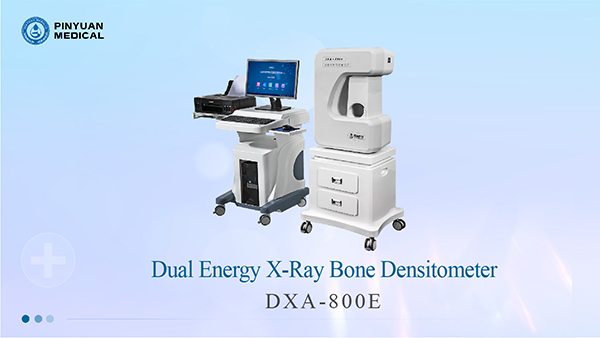In today's society, with the increasing aging of the population, osteoporosis has attracted more and more attention. Many people may not know that there is an inextricable link between weight and osteoporosis. Today, we use a bone density monitor to reveal the secret between osteoporosis and weight.
Osteoporosis, as the name suggests, is when the bones in the bones become sparse, weak, and prone to fracture. The disease is more common in the elderly, but it can also occur in younger people for a variety of reasons. Osteoporosis can not only lead to bone pain, shortened height, hunchback and other problems, and even fracture in serious cases, seriously affecting the quality of life of patients.
Many people may think that the heavier the weight, the stronger the bones, and therefore less susceptible to osteoporosis. However, the truth is not so simple. The relationship between body weight and osteoporosis is more complex than we thought.
Underweight risk: Underweight people, especially women, tend to be associated with lower muscle mass and bone density. That's because being underweight can mean not getting enough nutrients, especially key nutrients like calcium and vitamin D, which are essential for maintaining bone health. In addition, being underweight may also affect the endocrine system, which in turn affects bone metabolism.
But heavier isn't always better: While being underweight may increase the risk of osteoporosis, being overweight isn't a protective shield for bone health either. Although the bones of obese people bear greater pressure, too much adipose tissue will secrete some hormones that affect bone metabolism, such as leptin, which may promote bone resorption and increase the risk of bone loss.
So how do you accurately assess a person's bone health? Using bone densitometry, we can see that weight is not the only factor in determining bone health. It is more important to maintain an appropriate weight, a balanced diet, adequate calcium and vitamin D intake, and regular physical activity. These measures help build bone strength and reduce the risk of osteoporosis.
The relationship between osteoporosis and body weight is not simply positive or negative. Maintaining an appropriate weight, a balanced diet and regular exercise are key to maintaining healthy bones. Through the detection of bone densitometry, we can more accurately understand our bone health and take timely measures to prevent and treat osteoporosis. Let's start from now, pay attention to bone health, enjoy a good life!
Post time: Sep-06-2024


